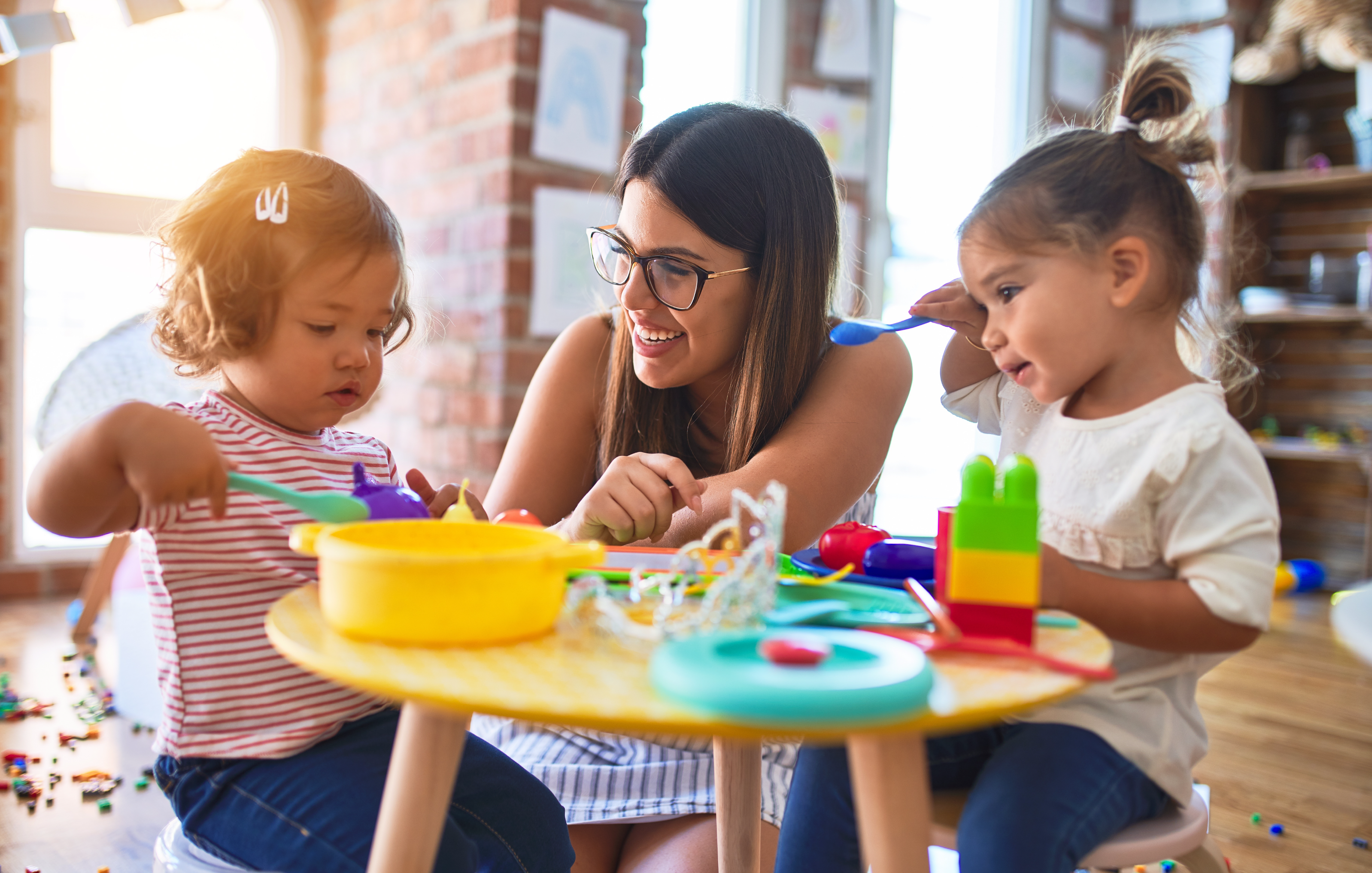7 Positive Parenting Tips that Support Secure Attachment
Published Attachment between parents and children is a critical bond to nurture early in life. Share the 7 positive parenting tips in today’s post with the families in your program—excerpted and adapted from Sing & Sign for Young Children by Anne Meeker Watson, these strategies will help parents strengthen their connection with young children and boost cognitive, motor, and social-emotional skills.
Attachment between parents and children is a critical bond to nurture early in life. Share the 7 positive parenting tips in today’s post with the families in your program—excerpted and adapted from Sing & Sign for Young Children by Anne Meeker Watson, these strategies will help parents strengthen their connection with young children and boost cognitive, motor, and social-emotional skills.
Sing the praises of (screen-free) floor play. Remind families about the importance of floor play and uninterrupted time with their child. Suggest that this interval include no screen time for child or adult. A child’s earliest efforts to communicate include using eye gaze, pointing, grunting, and facial expression to direct their caring adult’s attention to what they want and need. Parents who are looking at a screen may miss this important information—and over time, the child may become disengaged or disinterested in the relationship. Advise family members to turn off phones, television, tablets, and computers as they play, sing, cuddle, and talk with their child.
Teach parents some signed words. If you’re using sign language in your early childhood program to enhance communication, teach parents some signs that will amplify the engagement and interest of the child as their play develops. What are words you using consistently during mealtime, book reading, or play centers? What signed words do you use when giving directions? Are there signed words the child uses expressively to request? Show parents the signed words you incorporate during your routines at school or center so they can use them at home, too.
Promote plentiful and specific praise. Encourage parents to give their child lots of praise and attention for all their spectacular accomplishments, such as stacking two blocks, clapping hands, or finding the race car under the chair. Suggest how they can model language by using specifics such as “You are great at rolling the ball. I love to play ball with you!” Parents who praise children for following spoken or signed directions are supporting their ability to perform tasks independently.
Make playtimes predictable. Families should schedule uninterrupted playtime with their child as a consistent, predictable routine in their daily lives. There are always conflicts or interruptions that may preempt this important activity, but it’s essential to plan a time to connect and relax together. Advise parents to choose a time when the child is rested and relaxed and their hunger is satisfied.
Support silliness and humor. Remind parents to share their silliest and most gleeful self with their child. Their child is learning to “find the funny” in a variety of experiences. Adults can include comments such as “that was silly” or “you’re funny!” with their most mischievous grin to help their child develop their own sense of humor. Encourage parents to playing games like Peekaboo and laugh at the funny parts of songs they sing with their child.
Recommend repetition. Grownups tend to tire of playing children’s games and singing songs long before kids ever do. Repeating these activities can sometimes be tough for parents, but remind them that these repetitions are giving their children important opportunities to practice and master simple motor and language activities. Kids also love the warmth and connection they feel with their caring adults when they can practice games and songs again and again in their loving and attentive company.
Show parents how to narrate playtimes. Research shows that parents who are using spoken and signed words to narrate and describe their child’s thoughts, feelings, or actions during play are demonstrating a high level of responsiveness toward their child. That’s important because high levels of parental responsiveness contribute to enhanced parent–child attachment. Model for parents how to narrate what the child is doing and what they might be feeling during play, since some parents may need support if this skill doesn’t come naturally.
Strong parent–child attachment helps young children manage emotions, develop social skills, and build confidence in themselves and the world around them. Share these tips with families to help them reinforce attachment with their young children and support healthy development.



